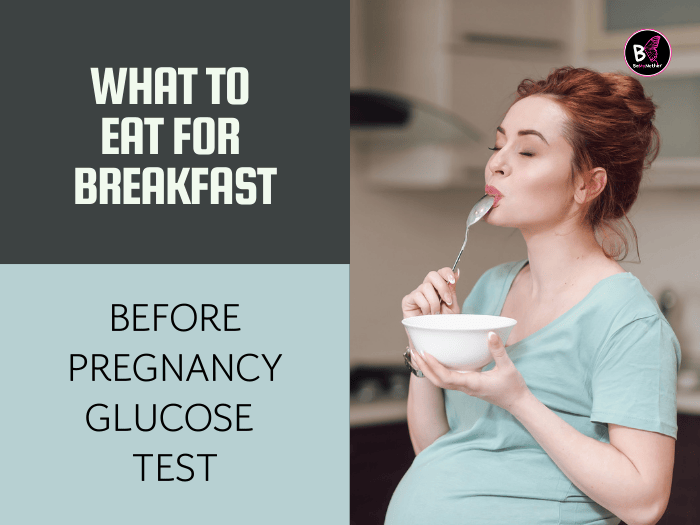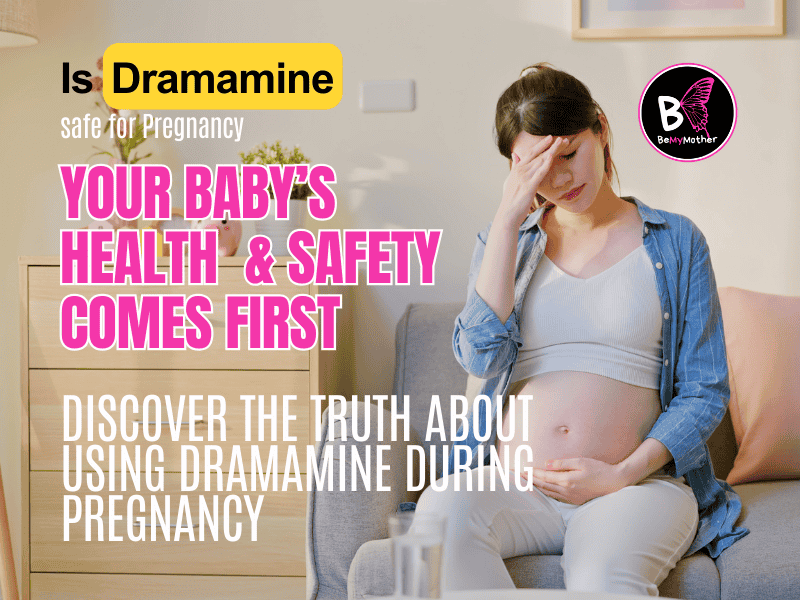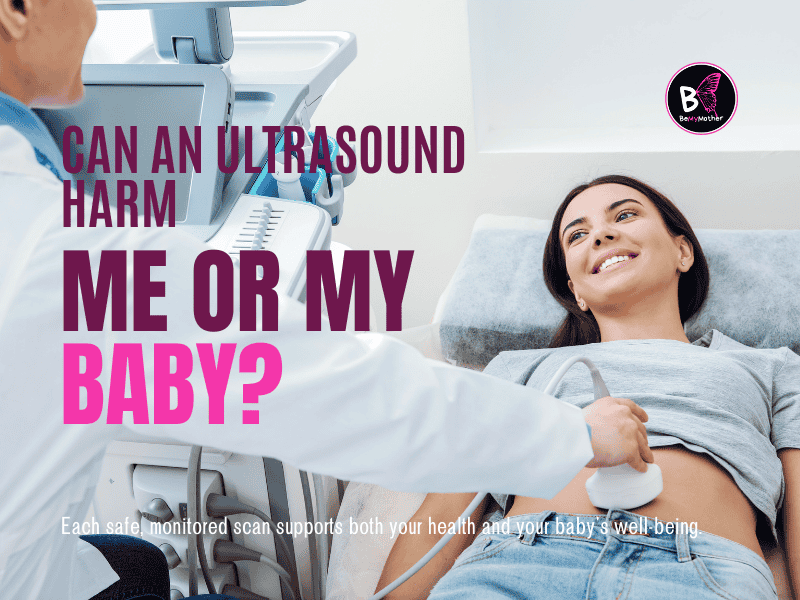📌 Quick Answer: If you’re allowed to eat before your pregnancy glucose test, choose a balanced breakfast rich in protein (eggs, Greek yogurt), fiber (whole grains, vegetables), and healthy fats (avocado, nuts). Avoid sugary foods like fruit juices, pastries, and refined carbs, as they can spike glucose levels.
Navigating pregnancy can feel like traversing a maze of dos and don’ts, especially when it comes to medical tests. One important screening is the pregnancy glucose test, which helps detect gestational diabetes. Naturally, you may wonder: What to Eat for Breakfast Before Pregnancy Glucose Test? Choosing the right foods can impact your results, so it’s essential to be informed. This comprehensive guide will walk you through everything you need to know about the best breakfast choices to ensure accurate results and the best possible outcome for both you and your baby.
The pregnancy glucose test helps detect gestational diabetes, a condition that affects 2-10% of pregnancies in the U.S. Knowing what to eat before your pregnancy glucose test can help ensure accurate results and minimize unnecessary retesting.
This guide covers what to eat, what to avoid, and expert-backed tips for confidently passing your glucose test.
1. What to Eat for Breakfast Before Pregnancy Glucose Test: A Complete Guide
Your pre-test breakfast plays a crucial role in keeping your blood sugar stable.
Why Breakfast Matters Before the Glucose Test
✔ Balances blood sugar levels before testing.
✔ Prevents false high readings that could lead to retesting.
✔ Reduces nausea and dizziness from fasting.
🔍 Research Insight: Blue Cross Blue Shield of Michigan (BCBSM) recommends eating nutrient-dense foods made up of complex carbohydrates and fiber before your glucose test. These foods digest slowly and help prevent blood sugar spikes.
Source: BCBSM
💡 Tip: Avoid eating 2-3 hours before the test if your doctor has advised partial fasting.
2. Can I Eat Breakfast Before My Pregnancy Glucose Test?
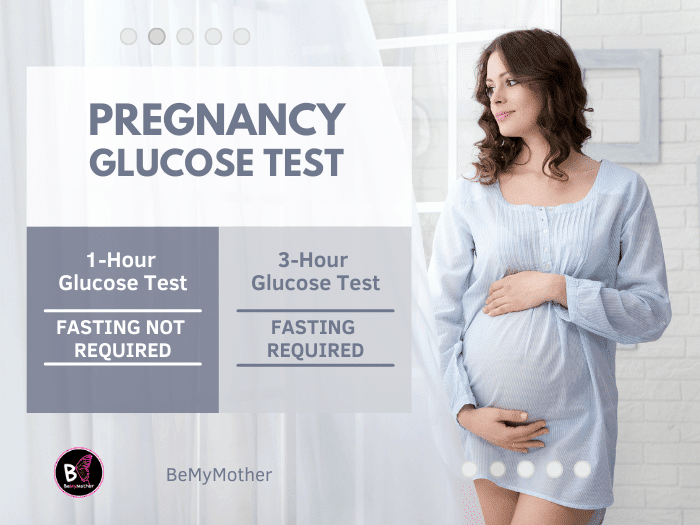
This depends on the type of glucose test your doctor orders.
| Glucose Test Type | Fasting Required? | When to Eat Before Test |
| 1-Hour Glucose Test | ❌ Not required (in most cases) | Eat 2-3 hours before testing |
| 3-Hour Glucose Test | ✅ Yes, fasting required | No food for 8-12 hours before testing |
🔍 Research Insight: BCBSM states fasting is not required for the 1-hour glucose test. However, a balanced breakfast should be eaten a few hours before testing to avoid sudden glucose spikes.
Source: BCBSM
💡 Tip: If you’re unsure whether to eat, ask your doctor before test day.
3. The Best Breakfast Foods Before a Pregnancy Glucose Test
Choose high-protein, fiber-rich foods and healthy fats to keep blood sugar stable.
✔ Eggs – Provide protein and stabilize glucose.
✔ Whole-Grain Toast – Slowly digests and prevents sugar spikes.
✔ Greek Yogurt (Unsweetened) – High in protein and gut-friendly probiotics.
✔ Avocado – Healthy fats support balanced glucose levels.
✔ Nuts (Almonds, Walnuts) – Great for steady energy.
🔍 Research Insight: UCSF Health recommends avoiding dry cereals, fruits, and milk before testing, as these digest too quickly and spike blood sugar. Instead, opt for whole grains plus a protein source.
Source: UCSF Health
💡 Related Article: Looking for a nutrient-packed way to start your day? Discover the powerful benefits of Bone Broth Pregnancy: What Studies Say + 10 Powerful Benefits & How to Safely Enjoy It and why it might be a great addition to your pre-glucose test breakfast.
💡 Tip: Pair carbs with protein (e.g., whole-grain toast with peanut butter) to slow digestion and prevent sugar spikes.
4. What Foods to Avoid Before a Pregnancy Glucose Test
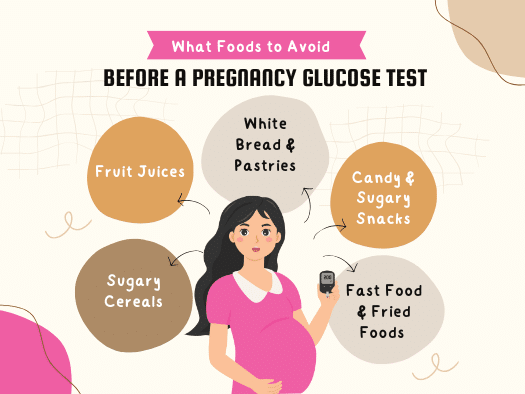
Avoid foods that can cause a rapid rise in blood sugar, leading to false high results.
❌ Sugary Cereals – High in refined carbs, digested too quickly.
❌ Fruit Juices – High in fructose, causing blood sugar spikes.
❌ White Bread & Pastries – Lacks fiber, leading to rapid glucose absorption.
❌ Candy & Sugary Snacks – May artificially elevate blood sugar levels.
🔍 Research Insight: A review in Nutrients emphasizes that gestational diabetes diets should limit processed carbohydrates to avoid postprandial glucose spikes.
Source: Nutrients
💡 Tip: Eat whole, unprocessed foods to ensure steady blood sugar.
5. Can I Eat a Banana Before My Pregnancy Glucose Test?
Bananas contain natural sugars but can still impact glucose readings.
| Banana Size | Sugar Content (grams) |
| Small Banana | 12g sugar |
| Medium Banana | 14g sugar |
| Large Banana | 17g sugar |
✔ If eating a banana, pair it with protein (e.g., Greek yogurt) to slow glucose absorption.
💡 Related Article: Worried about whether fruit can impact your glucose test? Is Pineapple Safe During Pregnancy? 10 Important Facts You Should Know breaks down its sugar content and whether it’s a good choice before testing.
💡 Tip: A small banana is a better choice than a large one, which has higher sugar content.
6. How to Pass a Pregnancy Glucose Test: Tips for Best Results

While there’s no guaranteed way to “pass” the test, adopting healthy habits can improve your chances of achieving optimal results.
Healthy eating habits leading up to the test.
In the weeks before your glucose test, focus on a balanced diet rich in whole foods, lean protein, and fiber. Avoid processed foods, sugary drinks, and excessive amounts of simple carbohydrates. Plan your meals ahead of time to prioritize what to eat before the one-hour glucose test pregnancy.
Hydration and lifestyle tips for better glucose regulation.
Staying hydrated is crucial for overall health and can also help regulate blood sugar levels. Drink plenty of water in the days leading up to your test. Regular physical activity, as your doctor recommends, can also improve glucose metabolism.
💡 Related Article: Staying hydrated is as important as eating the right foods before your glucose test! Pregnancy Hydration Drink: 8 Best Ways to Stay Hydrated for a Healthy Pregnancy reveals the best fluids to support blood sugar balance.
💡 Tip: Walk 10-15 minutes after meals to help regulate blood sugar before testing.
7. What Happens If I Fail My Pregnancy Glucose Test?
If you fail the 1-hour glucose test, you must take a 3-hour glucose tolerance test.
| Glucose Test Type | Testing Process | Diagnosis |
| 1-Hour Test | Drink glucose solution, blood drawn after 1 hour | Screening test |
| 3-Hour Test | Fasting required, blood drawn at 0, 1, 2, and 3 hours | Confirms gestational diabetes |
💡 Tip: If you fail the 1-hour test, stay calm! Many women pass the 3-hour test without issues.
💡 Related Article: If you’re focused on maintaining your fitness during pregnancy, you’ll want to ensure your glucose levels are stable. Planks During Pregnancy: 10 Expert Tips for Safe and Effective Workouts provides insight into safe exercise and blood sugar management.
8. What to Eat After a Pregnancy Glucose Test?

After fasting or testing, your blood sugar may drop, causing fatigue and dizziness.
Best Post-Test Meals:
✔ Grilled Chicken + Brown Rice + Vegetables
✔ Oatmeal + Nuts + Berries
✔ Avocado Toast + Scrambled Eggs
💡 Tip: Avoid sugary snacks after testing to prevent a glucose crash.
FAQ Section: Answering Common Questions About Pregnancy Glucose Test Diet
Q1: What is the best breakfast before a pregnancy glucose test?
A1: Protein (eggs, yogurt), fiber (whole grains), and healthy fats (avocado, nuts) help keep glucose stable.
Q2: Can I eat breakfast before my pregnancy glucose test?
A2: It depends. The 1-hour test typically allows eating, but the 3-hour test requires fasting.
Q3: Can I eat a banana before my pregnancy glucose test?
A3: Bananas contain natural sugars, so pair them with protein to slow digestion.
Q4: What happens if I fail the 1-hour glucose test?
A4: If you fail the initial test, your doctor may recommend a 3-hour glucose tolerance test to check for gestational diabetes.
Q5: How do I know if I passed my glucose test?
A5: Your doctor will inform you of the results. Normal glucose levels after the test indicate you passed, while high levels may require further testing.
Conclusion: What to Eat for Breakfast Before Pregnancy Glucose Test
Understanding what to eat for breakfast before a pregnancy glucose test is crucial for ensuring accurate results and maintaining a healthy pregnancy. Focusing on balanced meals, avoiding sugary foods, and staying hydrated can contribute to a smoother testing experience. Always consult your healthcare provider for personalized advice tailored to your needs and medical history. Remember, informed choices empower you to take the best possible care of yourself and your baby.
💡 Final Tip: Follow your doctor’s specific instructions, and don’t stress—you’re doing great!

